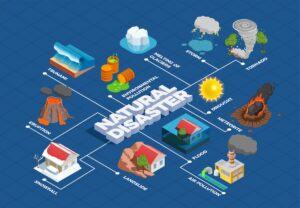Artificial Intelligence (AI) is transforming industries, economies, and societies at an unprecedented pace. From its early applications in data processing to advanced capabilities like autonomous vehicles, AI’s potential is boundless. As we look toward the future, it’s clear that AI will continue to evolve, disrupting traditional norms and creating new opportunities. But what does the future of AI hold for us? In this article, we explore some of the most exciting trends and innovations in AI that are expected to shape the world in the years ahead.
One of the most promising areas for AI in the coming years is healthcare. AI technologies are already being used in diagnostic tools, drug discovery, and personalized treatments. In the future, AI could revolutionize how we approach healthcare by providing real-time, accurate diagnoses, predicting patient outcomes, and optimizing treatment plans.
For example, AI algorithms can analyze medical images with greater accuracy than human doctors in some cases, identifying issues like cancer at earlier stages. AI-powered systems could also help manage chronic diseases by monitoring patients’ conditions remotely and making adjustments to treatment plans in real-time. In drug discovery, AI can significantly speed up the process of finding new medications by predicting which compounds will be most effective.
Autonomous vehicles (AVs) are poised to be one of the most significant applications of AI in the next decade. AI is already powering self-driving cars, trucks, and drones, but we are still in the early stages of this technology. In the future, fully autonomous vehicles could revolutionize transportation, reducing traffic accidents, lowering emissions, and improving mobility for those who cannot drive.
While challenges remain, such as improving AI’s ability to handle complex road situations, the future of autonomous vehicles looks promising. With advancements in sensor technology, AI algorithms will become more adept at navigating diverse driving conditions. In addition, autonomous delivery systems, including drones and self-driving trucks, could transform logistics, reducing costs and increasing efficiency.
Personal assistants like Siri, Alexa, and Google Assistant have already become common household tools. However, the next generation of AI-powered personal assistants will be far more intelligent, intuitive, and integrated into daily life. These future assistants will go beyond simply answering questions and playing music—they will understand user preferences, anticipate needs, and perform complex tasks with greater autonomy.
Imagine a personal assistant that schedules appointments, orders groceries, provides real-time travel updates, and even helps with decision-making. With advancements in natural language processing (NLP) and machine learning, AI-powered assistants will become deeply embedded in our personal and professional lives, acting as highly capable, proactive digital companions.
AI’s influence on creative industries is already being felt, with AI-generated music, art, and literature gaining popularity. In the future, AI will not only assist in the creative process but will also become an active participant in it. AI models like OpenAI’s GPT-3 and Google’s DeepDream are already capable of creating compelling text, music, and visual art, and these tools will only become more sophisticated.
Artists, writers, and musicians could collaborate with AI to push the boundaries of creativity. AI might assist with generating ideas, producing drafts, or even creating entire works of art. This fusion of human creativity and AI’s computational power could lead to new forms of artistic expression and innovative cultural trends.
As AI becomes more integrated into society, ethical concerns around its use will become increasingly important. Issues like bias in AI algorithms, data privacy, accountability, and the displacement of workers are major challenges that need to be addressed. In the future, governments, companies, and organizations will need to work together to establish ethical guidelines and frameworks for AI development and deployment.
For example, AI systems trained on biased data can perpetuate existing societal inequalities. Developers will need to ensure that AI models are fair, transparent, and accountable. As AI takes on more decision-making roles in critical areas like hiring, healthcare, and law enforcement, it will be essential to ensure that these systems are free from bias and discriminatory practices.
Moreover, the rise of AI-driven automation could lead to job displacement, particularly in industries like manufacturing, transportation, and customer service. Societies will need to find ways to reskill workers, create new job opportunities, and adapt to the changing labor market.
As climate change becomes an increasingly urgent global issue, AI can play a significant role in finding solutions. From optimizing energy use in buildings to predicting climate patterns and improving the efficiency of renewable energy sources, AI’s potential to drive sustainability efforts is immense.
For instance, AI can help reduce carbon emissions by optimizing power grids, enabling smarter energy management in homes and businesses, and improving the efficiency of solar and wind power. AI can also be used to monitor deforestation, track wildlife populations, and model climate change scenarios to inform policy decisions. By leveraging AI’s capabilities, we can better address environmental challenges and work toward a more sustainable future.
AI’s impact on the business world will continue to grow, with automation and optimization becoming key drivers of success. In the future, AI will streamline operations, improve decision-making, and enable companies to better understand and engage their customers.
AI can automate routine tasks like data entry, scheduling, and customer service, allowing employees to focus on higher-value activities. In addition, AI-powered analytics can provide businesses with deeper insights into customer behavior, market trends, and operational efficiencies. With AI-driven tools, companies can make faster, data-informed decisions that help them stay competitive in a rapidly changing marketplace.
With the increasing amount of data being generated and stored online, cybersecurity has become one of the most critical challenges of our time. AI will play a crucial role in enhancing cybersecurity measures, helping detect and prevent cyberattacks in real-time.
AI systems can identify unusual patterns of activity, flag potential threats, and even autonomously respond to attacks, minimizing the impact of breaches. As cyberattacks become more sophisticated, AI’s ability to learn from evolving threats will be essential in keeping data and systems secure. In the future, AI will work alongside human experts to create more resilient cybersecurity infrastructures.
The future of AI is full of promise, with innovations set to improve healthcare, transportation, sustainability, business, and many other areas. However, as we move forward, it is essential to address the ethical, social, and economic challenges that AI brings with it. By doing so, we can harness the full potential of AI while ensuring that it benefits all of society.
The future is bright, but it is up to us to shape how AI will impact our world. With careful planning, responsible development, and collaboration across industries, the next wave of AI could truly revolutionize life as we know it.





